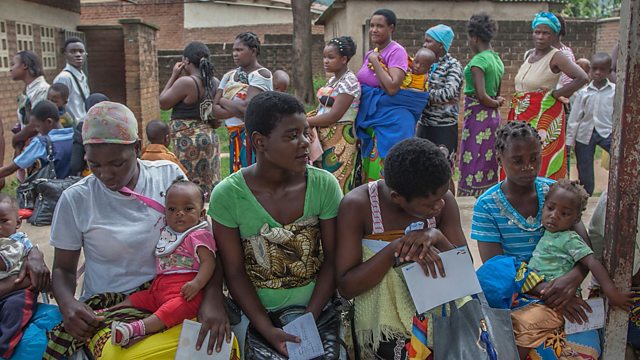Typhoid vaccine could deliver a 'massive improvement in public health'
The disease is prevalent in low or middle income countries and in places such as large south Asian cities, where the infrastructure is not in place to provide clean drinking water.
Typhoid is a bacteria that can be found in dirty water or contaminated foods. It travels from our gut into the bloodstream, causes a variety of symptoms such as fever, headaches and diarrhea, and can also lead to damage in the gut or even death.
James Meiring, an infectious diseases doctor at Sheffield University in the UK, explains how the disease is prevalent in low or middle income areas, and in places such as large south Asian cities, where the infrastructure is not in place to provide clean drinking water or healthy sanitation. He says that it is the commonest cause of bloodstream infection - and also antibiotic resistance, as these drugs are often used to treat it and are so readily available. He has been working with a team at Oxford to develop a vaccine - the same team that has developed the AstraZeneca Covid vaccine. The typhoid vaccine has now been approved by the WHO, and is available in Pakistan, Zimbabwe and Liberia, with applications in progress for Malawi, Bangladesh and Nepal.
"From a single dose of vaccine given to a child nine years of age, we can show 80% efficacy - a massive improvement in public health."
Photo: Parents and children at a health centre in Malawi Credit: Getty Images
Duration:
This clip is from
More clips from Health Check
-
![]()
The mental health impact of abortion restrictions
Duration: 04:53
-
![]()
Doctor turned author on writing his memoir
Duration: 02:52
-
![]()
Covid: 'I've been shielding from my family for almost 2 years'
Duration: 06:26
-
![]()
Long Covid: What we do and don't know
Duration: 08:49






